Student Opinion: End The Electoral College
An Outdated Solution for a Modern Problem
Image via thedailybeast.com
Since the 2016 presidential elections the political and mainstream spotlight has been shifted to this country’s Electoral College system.
It was an event that had the majority of people believing that then-presidential candidate Donald Trump was going to lose against his opponent Hillary Clinton.
When the results were announced, these people were shocked to find out they were wrong. When the dust had settled, it was revealed that while the next president had lost the popular vote, through the Electoral College he ultimately won. After these events, the Electoral College has been the subject of much discussion.
Perhaps it is time that this ancient system be replaced.
So what is the Electoral College exactly? It is important to know what the system is and how it works before delving into what needs to change.
When the Founding Fathers were writing the Constitution, their reasoning behind implementing the Electoral College was that they didn’t believe the people were intelligent enough to elect officials with “raw votes,” a form of pure popular voting.
However, this voting system never started fairly, since only elite white males would be allowed to partake, something the country would evolve away from in many ways. The E.C. is comprised of separate representatives that reside within their states, and were elected by their political parties, as well as the citizens.
When the time comes to elect a president, citizens don’t actually vote for the candidates; their vote goes to their representatives, and those officials vote in favor for their political parties and constituents. However, this is not always a guaranteed thing, since representatives may vote against their party’s favor. These people are known as “Faithless Electors.”
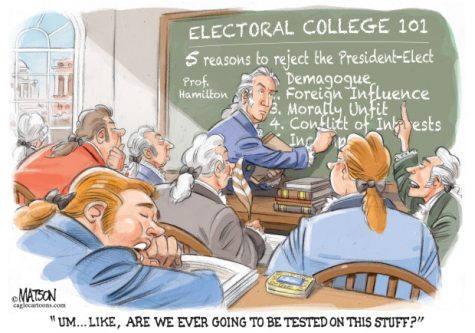
Now, depending on a state’s population, the larger it is equals more representatives, and more representatives means more votes. The main take away from this is people don’t vote for their president; instead they elect others to make the decision for them.
Does the Electoral College need to be looked at? Tara Ross, a lawyer and writer, makes the claim that the system should be appreciated for what it is. She brings up a good point about how it seems to be brought up whenever someone’s candidate lost, which then sprouts out supporters for and against the Electoral College.
Using the 2000 presidential elections as her recent example, a race that involved the candidate Al Gore to losing to his opponent George W. Bush, who won through the Electoral College despite Gore taking the popular vote, Ross claims that the Electoral College serves to “complement… checks and balances of the Constitution,” and that it lives up to modern problems, mainly because of how communications unite us and makes things more accessible. The E.C. helps in electing a president that would represent “a variety of subcultures” and not one that looks out for specific groups of “special interests.” Though she does acknowledge that it is not safe from concurrent problems like corruption.
Ross has one valid point. The Electoral College coming up to people’s attention when things didn’t turn out as they had voted has some truth. To narrow the concerns, let’s concentrate on times when the popular vote was defeated by the E.C., and event which has only occurred four times in U.S. history: the elections held in 1876, 1888, 2000 and 2016.
What is also surprising is that those winners were all Republican; they have never been on the opposite side of this paradox. So, while one can complain about the Electoral College because it played against your favor, it’s becoming problematic that this event has happened twice within the last 5 elections, and the victors were of the same party. This could be the beginning of a trend where the E.C. has completely become exploitable for one party.
Typically, it is expected for a candidate to win through both the popular and electoral votes. Since the rise of the information age, anything can be found about a candidate’s past actions that will surely affect the popular votes and possibly divide the E.C. and popular votes even further. Plus, the idea of having the Electoral College decide who is best suited for office to represent the people of the U.S. nearly collapses.
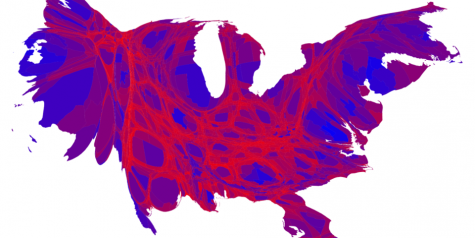
What the red/blue state dynamic looks like when adjusted for population, rather than open land.
Either President Trump has his sights aimed on dividing the nation and all its subgroups, or he is plainly is not aware of it. Regardless, his administration does not fit the part of “what’s best for our united interest,” and that is where the Electoral College went wrong. Senior Editor for NPR News Ron Elving says that the Founding Fathers did not believe the people were capable of electing their own President. In essence, we were not supposed to end up with the results of the 2016 elections, the E.C. failed, and this is merely one flaw that can contradict itself.
Shifting our focus, what about the political third parties? They have been mostly disregarded in presidential elections, is this another flaw of the Electoral College? The answer may seem that it is a solid “yes,” yet that is not technically correct.
As Elving points out, the Electoral College was designed to work with two mainstream parties, in this case the Democratic and Republican parties. Now, in Jerry Fresia’s article “Third Parties?” published by Z Magazine, he discusses how the Electoral College actively works to deny these third parties a chance at victory. Fresia then describes three events wherein a third party can get close to winning an election, the first being to deny any of the two main parties to win major states, because states have only two senators (each of whom will already be owned by one the two main parties); this would at least take them to the House of Representatives, of which the majority are either Democrat or Republican. They would then lose at the House and the first option is out the window.
The second option, with the assumption that it’s a massive party that was able to take about “25 to 45 percent” of voting power, to achieve anything they would need to dissolve and grant their support to the whichever of the main parties align better to their ideas. Otherwise sticking around would just be handing the election to the main party that was already in the lead, which is what would have led to option 3: equal representation in the elections, and that would mean “dumping” the Electoral College.
What is the alternative? The solution that is most often brought up is the a National Popular Vote. The intent of this solution is to completely replace the Electoral College, but the method on how to go about working it into the system is debated. Roy Davis, a businessman and Republican wrote for Empire.com about how he is frustrated to live in the state of New York which is predominately a Democrat state. He touches on how his vote won’t matter at the end of the day since his state leans towards the Democrat’s side; their representatives will dominate in the Electoral College, and his vote is lost in the wind without an impact. Davis calls for a national popular vote, one where his vote can be carried over along with all the other losing side votes, and still be counted for their candidate of choice.
If we can modify that idea slightly, this could allow third parties to really be able to compete. Better, this could usher a new age of politics, using the idea of how our capitalism functions, if we there are better ideas and parties on the table, this would encourage present politicians to work harder to please voters.
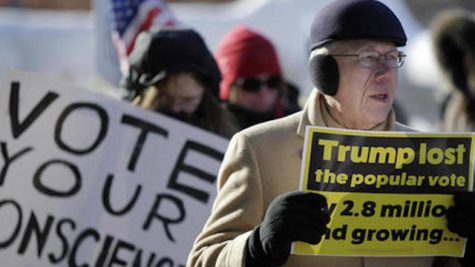
What is actually happening? There have been serious actions taken to address the Electoral College’s deficiencies that the gears of change have already started moving. On February 21, 2019, Colorado Public Radio News published an article on the progress of Colorado’s National Popular Vote Bill, SB 19-042, which gives the State’s electoral votes toward the winner of the national popular vote and was signed by Governor Polis on March 19th, 2019.
This made Colorado the 12th state to approve the bill, and if enough states approve it for themselves, it then will become national. However, people like Mesa County Commissioner Rose Pugliese and Mayor Don Wilson who are Republicans, have petitioned to have the people of Colorado vote on this issue themselves in 2020, saying that we should not forsake electoral votes so easily.
A common misconception that Republicans fear about the national popular vote, is that states like New York and California would be dictating who the next president would be. As we’ve covered, almost always do the victors win through both Electoral and Popular votes together. Senator Mike Foote, a supporter of the bill, insist that this would make votes from states that are not battleground states matter. Battleground states are states that have a significant number of electoral votes, but it could lean to either the Republican or Democrat side.
Thus, candidates pour in large amount of resources to win those states, giving us the term “battleground states.” The national popular vote has the potential to completely change how presidents are chosen, and this sounds rather exciting.
What is happening right now with regards to the Electoral College means we are potentially experiencing history in the making. The current national popular vote may not be exactly what Davis envisioned, even though his idea seemed more democratic, but it is exactly what we need to pave a way to finally do away with the Electoral College. To quote Dave Chappelle, “Although America is the greatest nation in the world, we still face many modern problems, and modern problems require modern solutions.”



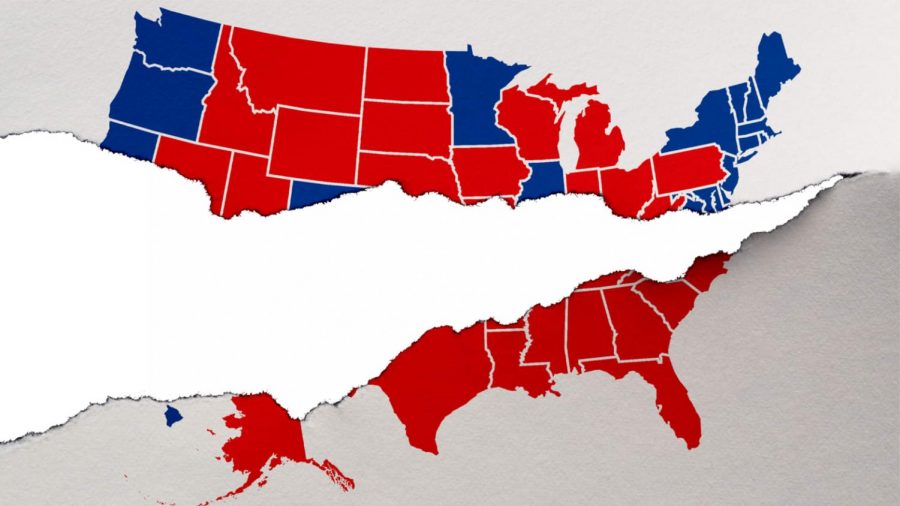
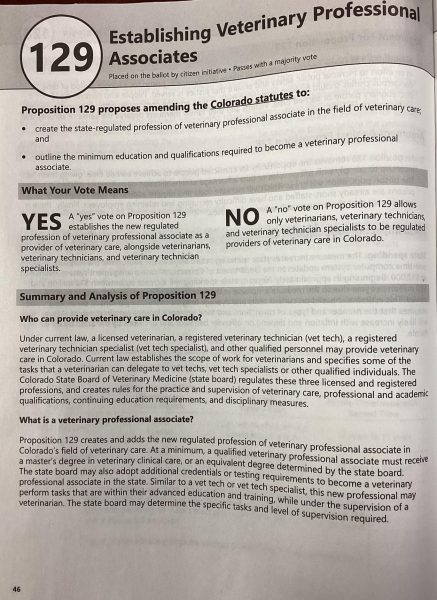
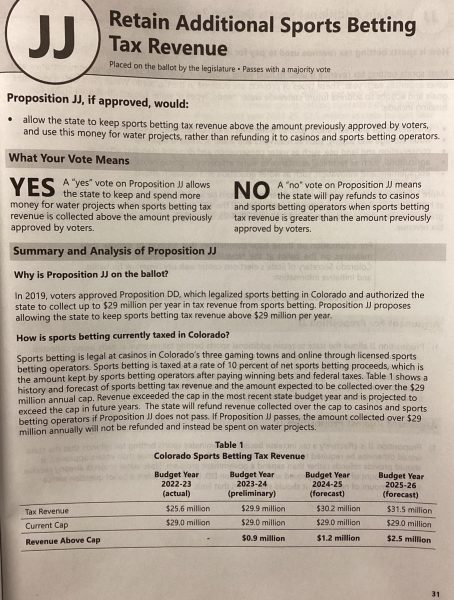
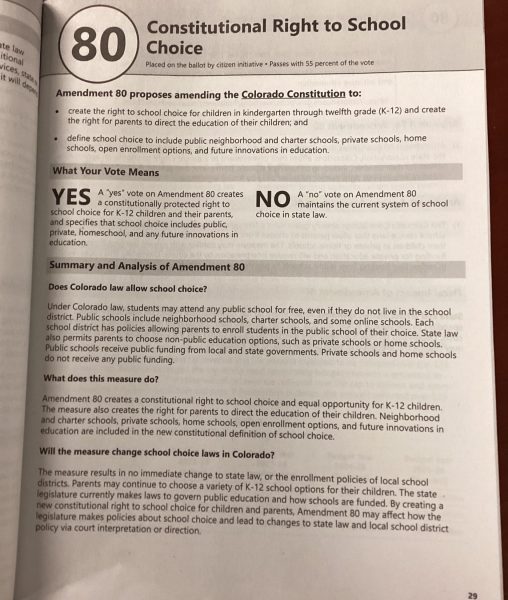
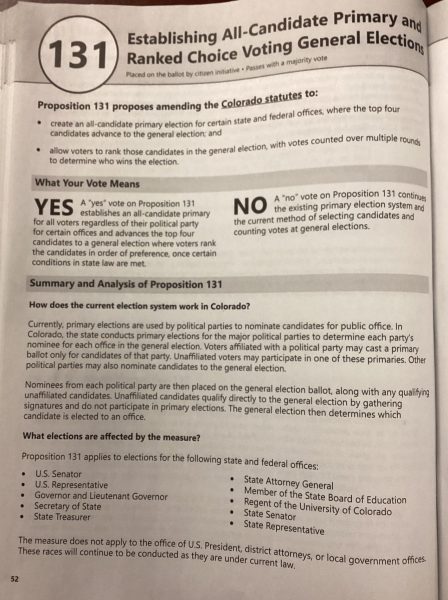
Ray Ubinger • Jul 8, 2019 at 12:26 pm
There is no constitutional allowance for a legislature to dictate how its electors shall vote. “The Electors shall vote BY BALLOT for President and Vice President.” Not even the electors themselves are supposed to be able to know who amongst them “defects.” Yet 134 electors in 2016 were statutorily ordered, INTIMIDATED, into voting Trump. THAT’s the problem. The electors should be FREED – not abolished.
Yes a legislature gets total say over WHO its electors shall BE. But WHOM the electors then VOTE FOR is a SEPARATE QUESTION. And again, the constitution says the electors “shall vote BY BALLOT.” That means SECRETLY, with only THE VOTES recorded, not who cast which vote.
Susan Anthony • Jun 21, 2019 at 9:47 am
California and New York state together would not dominate the choice of President under National Popular Vote because there is an equally populous group of Republican states (with 58 million people) that gave Trump a similar percentage of their vote (60%) and a similar popular-vote margin (6 million).
In 2016, New York state and California Democrats together cast 9.7% of the total national popular vote.
California & New York state account for 16.7% of the voting-eligible population
Alone, they could not determine the presidency, much less “rule the country.”
In total New York state and California cast 16% of the total national popular vote
In total, Florida, Texas, and Pennsylvania cast 18% of the total national popular vote.
Trump won those states.
Susan Anthony • Jun 20, 2019 at 8:07 pm
With the National Popular Vote bill:
All voters would be valued equally in presidential elections, no matter where they live.
Candidates, as in other elections, would allocate their time, money, polling, organizing, and ad buys roughly in proportion to the population
Every vote, everywhere, for every candidate, would be politically relevant and equal in every presidential election.
No more distorting, crude, and divisive and red and blue state maps of predictable outcomes, that don’t represent any minority party voters within each state.
No more handful of ‘battleground’ states (where the two major political parties happen to have similar levels of support) where voters and policies are more important than those of the voters in 38+ predictable winner states that have just been ‘spectators’ and ignored after the conventions.
We can limit the power and influence of a few battleground states in order to better serve our nation.
The bill would take effect when enacted by states with a majority of the electoral votes—270 of 538.
All of the presidential electors from the enacting states will be supporters of the presidential candidate receiving the most popular votes among all 50 states (and DC)—thereby guaranteeing that candidate with an Electoral College majority.
Susan Anthony • Jun 20, 2019 at 8:05 pm
The intent of National Popular Vote is NOT to completely replace the Electoral College,
Unable to agree on any particular method for selecting presidential electors, the Founding Fathers left the choice of method exclusively to the states in Article II, Section 1
“Each State shall appoint, in such Manner as the Legislature thereof may direct, a Number of Electors….”
The U.S. Supreme Court has repeatedly characterized the authority of the state legislatures over the manner of awarding their electoral votes as “plenary” and “exclusive.”
The National Popular Vote bill would guarantee the majority of Electoral College votes and the presidency to the candidate who receives the most popular votes in the country. It does not abolish the Electoral College.
The National Popular Vote bill is states with 270 electors replacing state winner-take-all laws that award all of a state’s electoral votes to the candidate who get the most popular votes in each separate state (not mentioned in the U.S. Constitution, but later enacted by 48 states), in the enacting states, to guarantee the majority of Electoral College votes for, and the Presidency to, the candidate getting the most popular votes in the entire United States.
The bill retains the constitutionally mandated Electoral College and state control of elections, and uses the built-in method that the Constitution provides for states to make changes. It ensures that every voter is equal, every voter will matter, in every state, in every presidential election, and the candidate with the most votes wins, as in virtually every other election in the country.